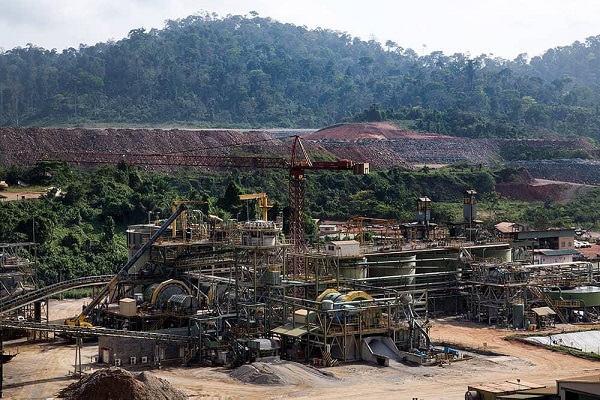
Can govt bet on Asante Gold to create world-class indigenous miner?
Ghana is a ‘starboy’ in global gold production. For more than 100 years, the country has supplied the world with envious quantities of the most precious metal to maintain its grip on top 10 global producers. In 2019, it bypassed South Africa to become the continent’s largest gold producer.
A robust regulatory regime has also led to a fairly disciplined mining culture although pockets of incidence call for increased enforcement. With substantial proven reserves, the country remains a critical source to the world’s future gold demands and investors that pitch camp there could smile for a long time.
Advertisement
The challenge though is the structure of the country’s mining sector. Despite mining gold for a century and counting, the country has failed to produce its own ‘gold tycoons.’
Negligible ownership
Neither a single Ghanaian entrepreneur or company nor a group of them can boast of up to a 10 per cent stake in any of the top five gold production companies.
Ghana’s lucrative mines are largely owned and operated by subsidiaries of global multinationals with negligible indigenous stakes.
For Sir Sam E. Jonah, a statesman and leadership executive, it is a pity. “Look at the mines, there is no Ghanaian who owns one per cent of the mines. No Ghanaian! It is a fact,” the former President of AngloGold Asante, said in a Friday interview on GTV.
There is obviously a long road ahead for the country in any attempt to increase indigenous ownership of the mining sector. But recent developments indicate that the government is determined to change the tide.
A case in point is the steamy excitement that the proposed sale of Kinross Corporation’s Ghana operations (Chirano Gold Mine) to Asante Gold Corporation is generating among industry stakeholders and the government.
The MIIF angle
Although a Canadian-based company, more than 40 per cent of Asante is owned by indigenes, giving it the necessary Ghanaian grip in a high-end mining company that the country had long lacked. Some board and strategic executive positions are also held by Ghanaians and that brings the company further closer to the communities it operates in.
Just last month, the state-sponsored Minerals Income Investment Fund (MIIF) acquired 3.5 per cent of Asante in line with the fund’s mandate to hold strategic stakes in high-performing mining companies.
It has also agreed to fund the purchase of Chirano by Asante to augment its plans of enhancing the value that the country derives from gold production.
Bullish acquisitions
Asante’s bullish posture to acquisitions and investments in the country could also signal its commitment to the long-term vision of the country and the government.
Between 2011 and this year, it has closed more than four deals, all of which were fully funded from its balance sheet and shareholders. Just last August, it purchased the Bibiani Gold Mine for $90 million and has since assembled a Ghanaian-led team of engineers to refurbish the plant and bring the mine back to production.
The announcement of the exclusive agreement to purchase Chirano Gold Mine from Kinross was also preceded by plans to cross-list on the Ghana Stock Exchange to further share its wealth with the general public.
All these align well with the government of President Nana Addo Dankwa Akufo-Addo’s broad vision of a Ghana Beyond Aid, using the private sector as the fulcrum.
Govt support
The sale of Chirano also portends great prospects for the gold-rich Bibiani community and the surrounding areas.
A new and focused owner would obviously revitalise the mine through investments and inject new life into the community, which has been a huge beneficiary of Chirano’s expansive social interventions and infrastructural projects.
Conscious of these ripple effects and in line with its mandate to help enhance the value that the country derives from the mining sector, MIIF has been pushing through its commitmen to fully fund the transaction with support from the Ghana Infrastructural Investment Fund (GIIF).
With MIIF and GIIF onboard, Chirano’s revitalisation could be speedy and broad-based. That builds upon the new hope that is emerging from the community around Chirano’s operations, creating good will for a government that has earned applauds for significantly transforming the face of mining and reinvigorating that further with a proactive and forward looking Minister of Lands and Natural Resources, Mr Samuel Abu Jinapor.
Springfield example
And in case there is doubt, Springfield and McDan come in handy.
The strong rise of those indigenous companies over the last five years should be enough motivation for the government and Ghanaians at large to commit more funds, policies, technical expertise and general support into enabling a transaction that has the potential to set the tone for Ghana to own a substantial part of its lucrative mining sector.




